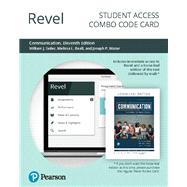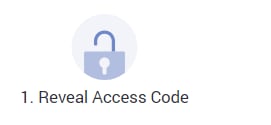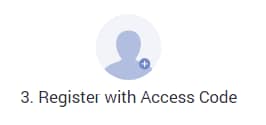For courses in Introduction to Speech Communication
Connect. Communicate. Thrive.
Revel™ Communication: Making Connections helps students make connections in their daily lives, communicate more effectively, and succeed in our ever-changing world. Authors William Seiler, Melissa Beall, and Joseph Mazer balance a thorough yet straightforward explanation of basic principles with a solid theoretical foundation, backed by the most up-to-date research. The 11th Edition offers expanded and updated coverage of key contemporary issues — such as the proliferation of social media and cultural diversity — which have important implications for the communication field.
Connect. Communicate. Thrive.
Revel™ Communication: Making Connections helps students make connections in their daily lives, communicate more effectively, and succeed in our ever-changing world. Authors William Seiler, Melissa Beall, and Joseph Mazer balance a thorough yet straightforward explanation of basic principles with a solid theoretical foundation, backed by the most up-to-date research. The 11th Edition offers expanded and updated coverage of key contemporary issues — such as the proliferation of social media and cultural diversity — which have important implications for the communication field.
Revel is Pearson’s newest way of delivering our respected content. Fully digital and highly engaging, Revel replaces the textbook and gives students everything they need for the course. Informed by extensive research on how people read, think, and learn, Revel is an interactive learning environment that enables students to read, practice, and study in one continuous experience — for less than the cost of a traditional textbook.
NOTE: This Revel Combo Access pack includes a Revel access code plus a loose-leaf print reference (delivered by mail) to complement your Revel experience. In addition to this access code, you will need a course invite link, provided by your instructor, to register for and use Revel.











